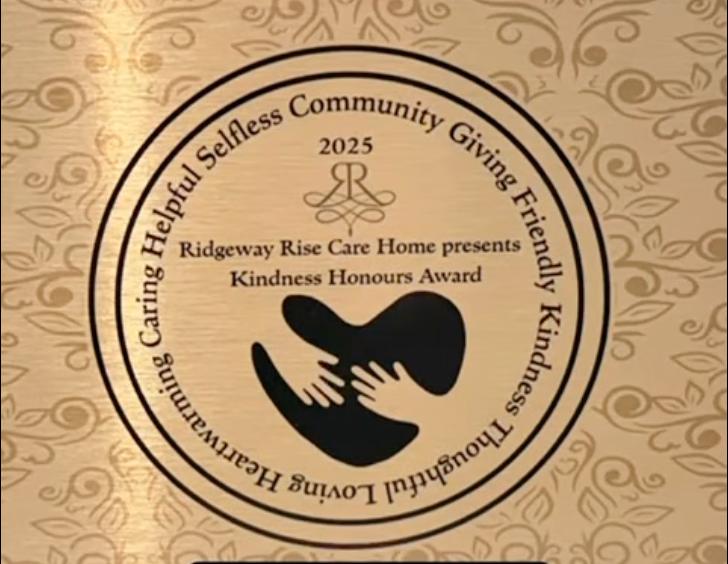What is the Difference Between Residential and Nursing Care?
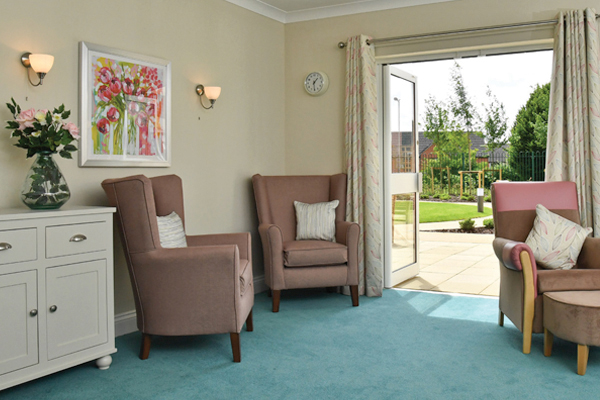
In and around the UK there are multiple different types of care homes, from residential care homes and nursing homes to dual-registered care homes and all-inclusive care homes. We understand that choosing a care home or nursing home for you or your loved one is a decision that shouldn’t be taken lightly; there is much to consider including types of care provided, the location, the cost, the accessibility and so much more.
Residential and nursing care both provide support and care 24 hours a day, individuals can receive as little or as much help and assistance as they wish. A lot of care homes that offer nursing and residential care will encourage individuals to be as independent as possible, enabling them to be able to continue with their sense of purpose, alongside receiving support where it’s required.
What is Residential Care?
Residential care is a type of care for those who can live independently the majority of the time, but might require some assistance with some daily tasks, mobility, companionship or medicine management. Residential care facilities will include many communal areas such as dining rooms and lounges where residents can engage and socialise in activities, which allows individuals to enjoy all the group living benefits within a care home, avoiding any stress or complications that a house can bring. The team providing residential care don’t usually have medical qualifications, meaning they’re unable to administer medicine to residents.

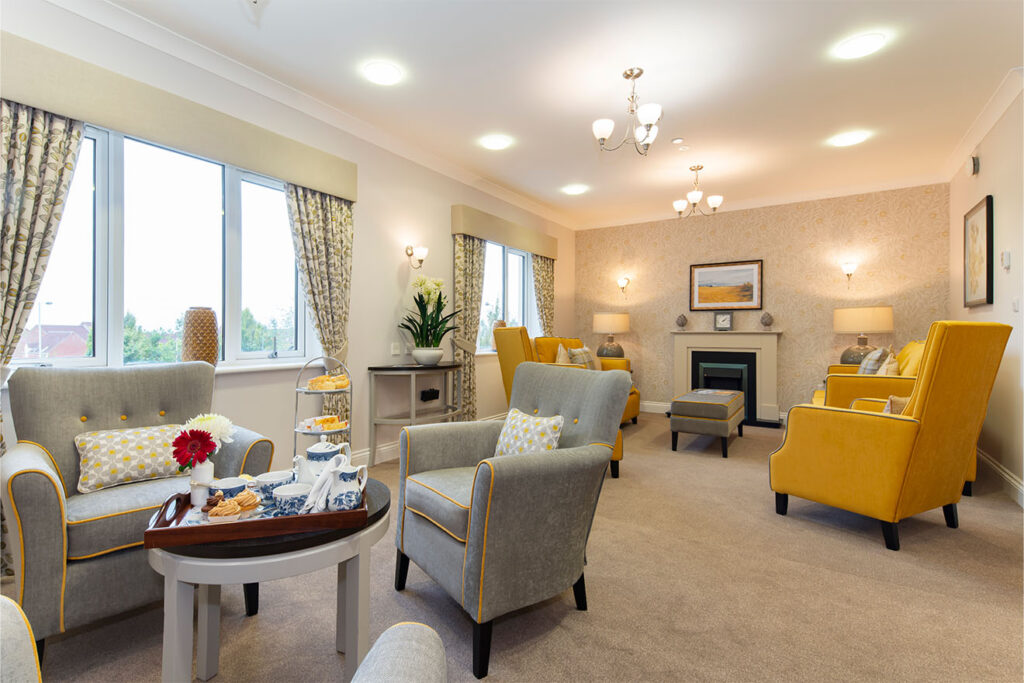
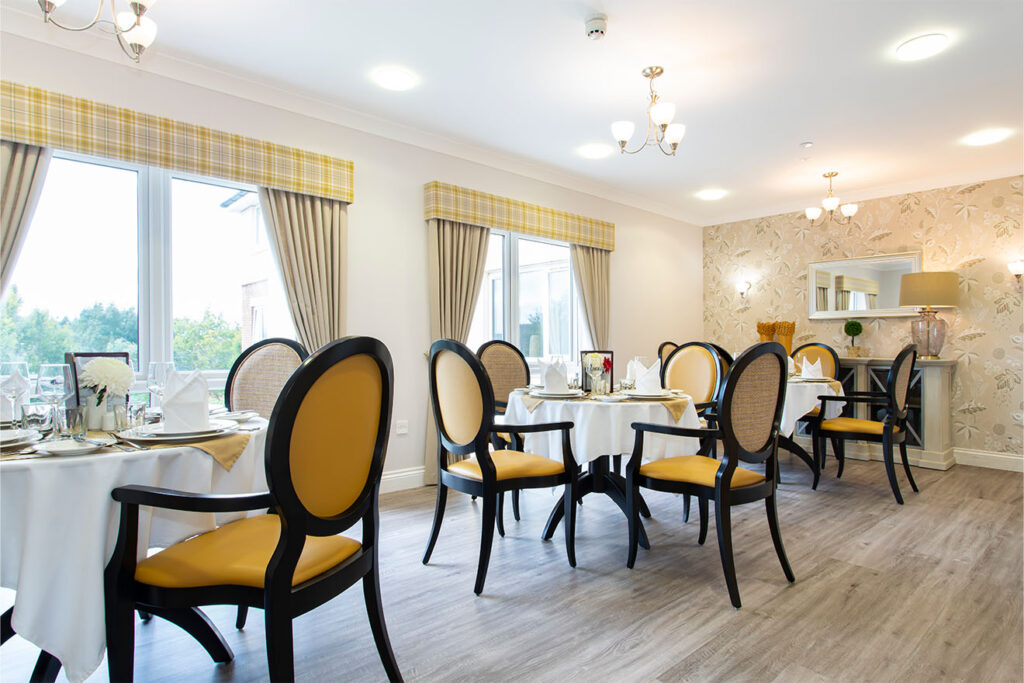
Residential care homes can also be confused with sheltered housing or assisted living. Residential care provides help and support from care professionals at all times of the day and night, as well as numerous social activities, opporuntities and a wide range of amenities and facilities that residents can use whenever they wish.
What is Nursing Care?
Nursing care is a long-term care option for individuals with more complex medical needs, ones that require 24 hour care and medical supervision. Like residential care, residents will have help with daily living, personal care, mobility and housekeeping, yet with additional support from a qualified nurse for specialised medicine management, intravenous medication, physical therapy and ongoing assistance from a group of licensed health and social care professionals.
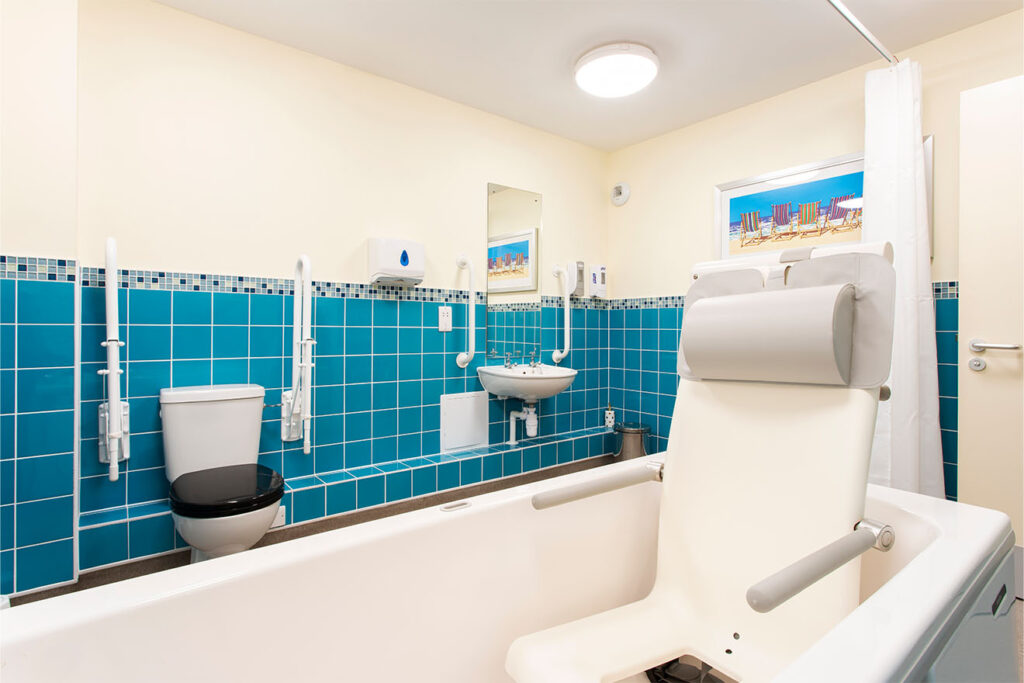

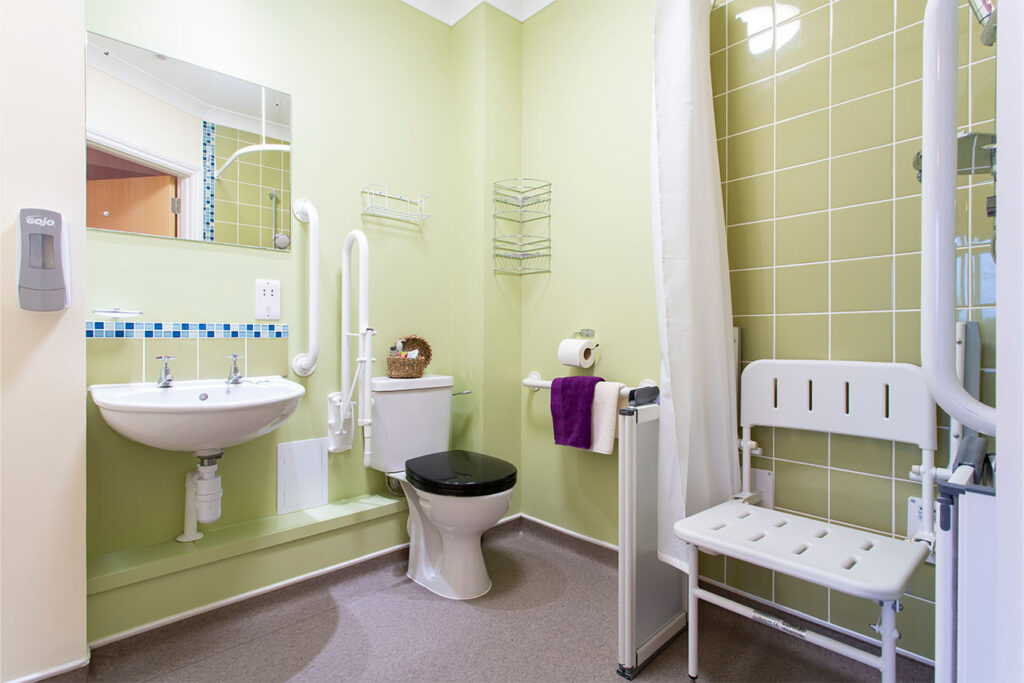
Unlike residential care, those who receive nursing care will have a key nurse assigned to them, with higher care qualifications (usually registered nurses), enabling them to cater for people with higher levels of dependency needs.
The main goal of nursing care is to provide a comfortable and safe environment where residents can receive frequent medical treatment and personal care alongside support to live a healthy, meaningful life.
What is the Difference Between Residential Care and Nursing Care?
There are multiple ways in which nursing and residential care are similar to one another; they both include 24/7 care, all personalised and assisted with some medication management. However it is essential to understand the main differences between nursing and residential care to ensure you know what the most appropriate care type is needed for either yourself or your loved one.
Below we have expanded on some of the key differences between the two…
Medicine Management
As mentioned briefly above, both nursing and residential care will have care professionals on hand to assist with medication management, for example, being reminded when medication should be taken, which one and at what time. However, staff trained under residential care are unable to administer medication as they need specific qualifications. Registered nursing individuals and caregivers who provide nursing care will be fully trained and qualified, providing support with medication for a range of nursing needs.
Levels of Assistance
Although team members work tirelessly, being available 24 hours a day, those who receive residential care can usually live independently during their days, only requiring support when they need it. However, nursing residents will require help for the majority of their days, resulting in them having a 1:1 assignment with a team member who provides them with personalised care, alongside other care assistants.
Home Adaptations
For both residential care and nursing, there are home adaptions including wider corridors, may bannisters, en-suite bedrooms with grab rails or chairs and nurse call systems. However, specifically for nursing care, there will be additional adaptions such as multiple ramps for wheelchairs, stair lifts, profiling beds, banana boards or hoists and walking aids. This means that every resident will receive the support and care they need to feel comfortable whilst travelling around the care home.
What is the Most Appropriate Care for You or Your Loved One?
Due to there being so many different care homes on offer it can be tricky to distinguish the key differences between them and what would be the best for you or your loved one. It’s also important to not only consider the care that’s provided but also the homes facilities, location, social opportunities, environment, independent living and support systems.
If you or your loved one is searching for a type of care where you can reap the benefits of group living whilst enjoying a selection of facilities and amenities, form new bonds and receive low-level assistance with day to day tasks then residential care would be the most appropriate care option for you.
However, if you are unable to for the most part of your life, live independently and require higher levels of personal and medical care from a registered nurse, then nursing care would be the best choice. To further understand the care types in more detail, we suggest speaking to your chosen care home directly as they will be able to describe their services in a more personalised way, offering support to you alongside.
Once you have chosen a care home for yourself or your loved one, the care home team will work close with yourself and other friends or family members to create a personalised care plan which will outline their needs and preferences, allowing the home to ensure each resident is looked after to the most highest degree.
Care Offered at Ridgeway Rise Care Home
Ridgeway Rise Care home in Wiltshire is purpose-built and luxurious, supporting the overall wellbeing of our residents. Our home provides 73 en-suite bedrooms alongside modernised facilities, engaging activities and personalised care, making sure all of our resident’s needs are met. We have a dedicated team of professionals who support all of our residents with being independent, helping them with their medical and personal care. Our main priority is to offer the family members of our residents with the reassurance that our care home is providing outstanding levels of care.
We’re proud to provide high levels of residential, nursing, dementia, respite and even palliative care. The wellbeing of our residents are our top priority; each resident is assigned a primary care nurse who will always be there to discuss and assess needs as well as develop personalised care plans which will be monitored and reviewed regularly - All care provided to our residents is tailored to each individual needs.
Our beautiful, all-inclusive care home has been built with an impressive range of facilities, services and amenities to be enjoyed by all; we have something for everyone. Whether you want to watch an old classic or a new release in our cinema, enjoy afternoon tea in our landscaped gardens or have a beauty treatment in the hair and beauty salon. We aways strive to provide a range of opportunities for everyone, ensuring they can live their life to the fullest, from quiet afternoons reading outside to gardening activities.

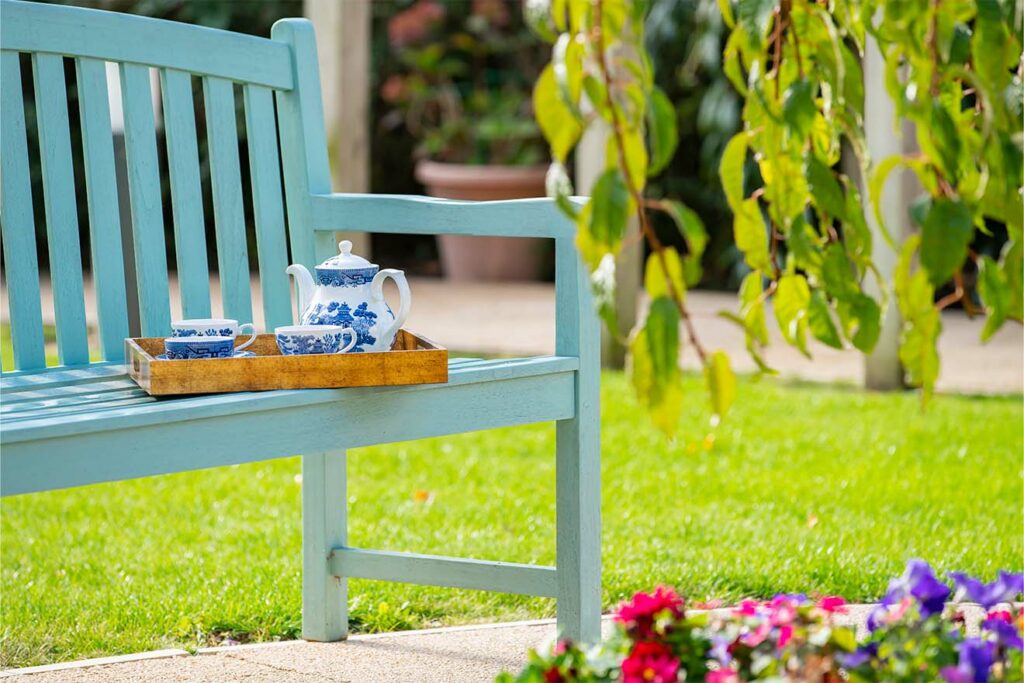
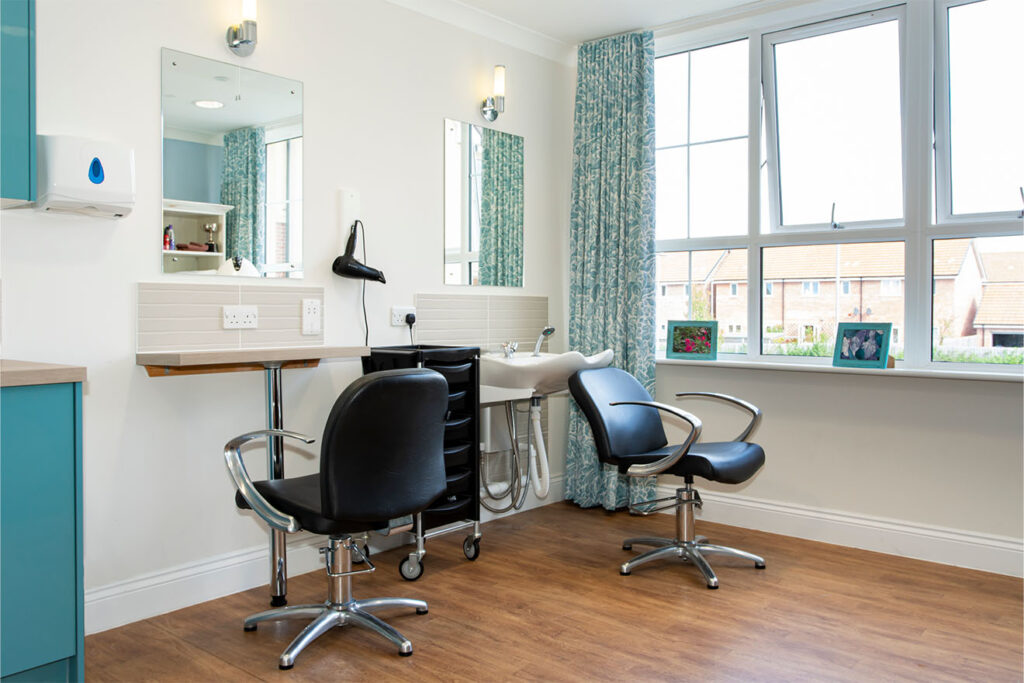
For more information on our wonderful care home and/or care services, please don’t hesitate to get in contact with us today.

